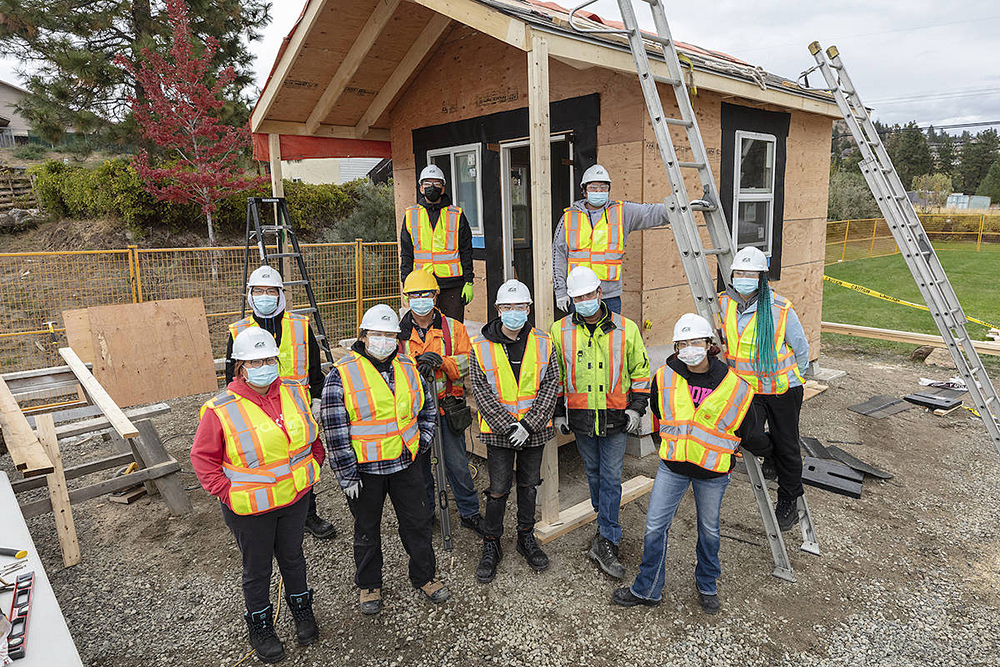It’s a challenging time for many as people continue to grapple with the coronavirus pandemic.

But on one tiny, yet significant square of the world, Indigenous students are prepping for a new normal by training in clean energy construction.
From Sept. 21 to Oct. 29, 10 Indigenous construction students worked to build an energy-efficient shed on Westbank First Nation (WFN).
The completed building, which has high-efficiency walls, insulation, two windows and a solar light, is located next to the WFN Community Garden and will be used for food and equipment storage.
“I liked the teamwork when we built the garden shed — everybody being together and helping each other,” said Penticton Indian Band member Selena Joe.
“It’s given me a sense of accomplishment.”

Joe and the other students were building the energy-efficient shed as part of a training program in collaboration with WFN, the Okanagan Training and Council (OTDC) and FortisBC’s Residential Energy and Efficiency Works (Renew) program.

Get breaking National news
“I entered the program to get some experience under my belt. I had never worked on a job site before,” said Joe.

Over the course of the four-week program, she and the other students received eight safety-related certificates in the program, including WHMIS, First Aid, and small machinery operator’s licence.
The students received two weeks of in-class and on-site training with mentors and industry professionals from West Kelowna construction company, WIBCO Construction Ltd.
“I’m feeling a lot more confident now about going to a job site,” said Joe, reflecting on the experience.
The program’s goal is to provide participants with the self-confidence and skills they need to achieve new goals and opportunities in the construction industry, says Nicole Brown, corporate communications advisor for FortisBC.
“It gives students some exposure that they might not have had before. It makes them familiar with what it’s like to be on a job site,” said Brown.

WFN worked with FortisBC and OTDC to identify students for the program.
“Fortis values the relationships with Indigenous communities,’” said Brown. “We feel that those partnerships are the best foot forward and making sure that we have an energy system in B.C. that serves everyone.”
Fortis says its Renew program, now in its 10 year, works with 57 different First Nations across B.C. The 10 recent graduates join 122 other students who have graduated from the program.
For these students, their journey will continue after graduation. They’ll be supported for two weeks of work experience on a real construction site and will continue to get mentorship for up to three months as they search for related job opportunities or navigate related post-secondary programs.
Joe is looking forward to her next steps as well.
“I want to go back to school to further my education,” she said, “so I can start working and get some experience.”







Comments
Want to discuss? Please read our Commenting Policy first.